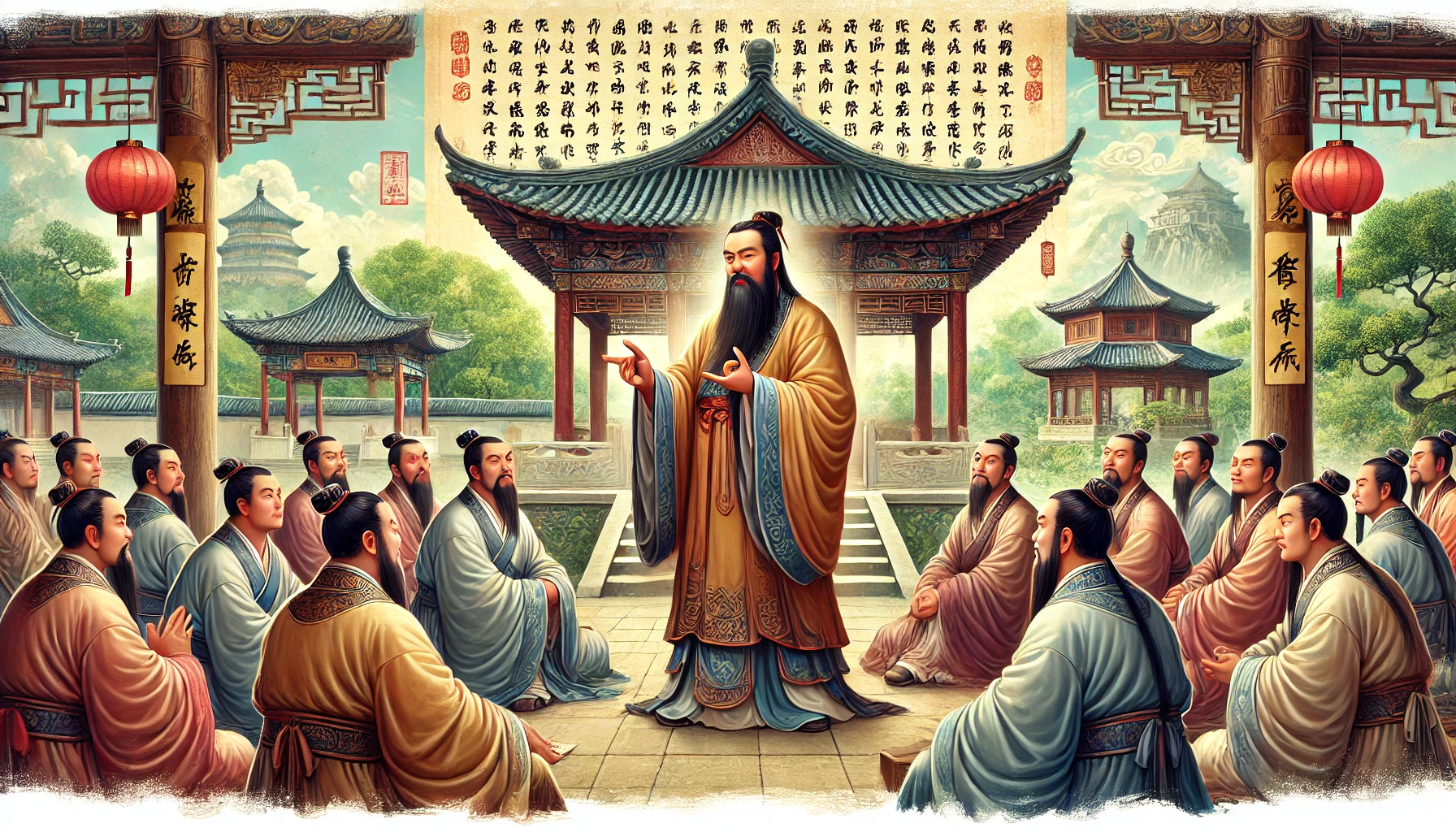To overcome the social chaos of the Spring and Autumn Period, Confucius emphasized the importance of example and sought to correct social order and human relationships through the moral cultivation of just men and soldiers. He emphasized the importance of scholarship and education, and sought to raise moral standards by giving everyone the opportunity to become a soldier. Confucius’ ideas had a profound impact on later East Asian cultures and remain important values in modern society.
Confucius lived during the Spring and Autumn Period, a time when the feudal system of the Zhou dynasty was collapsing and imperial states were fighting fiercely for control. As a way to overcome this social turmoil, Confucius proposed the concept of courtesy. It was not merely a repressive device that exposed status differences or regulated behavior in a binary fashion. It was a code of ethics for individuals, a system for ordering society and the state, and a social device for proper human relations.
Confucius said that a polity based on example begins with the right name, and he presented the military as the subject to realize the right name. Chung-ming means “correcting one’s name,” which means doing what one should do in various social relationships. A monarch must possess the virtues of a monarch and practice proper example, not only for himself but also for his subjects, parents, and children. Confucius believed that if a ruler does not rely on manners and relies on laws and punishments to govern, the people will only obey the laws to avoid punishment and will not try to judge for themselves what is right and wrong.
Confucius’s definition of a warrior is one who strives to perfect his moral character, but also realizes the example through his own moral cultivation. Originally, tzu was used to refer to the political ruling class and contrasted with xiao, the common people. Confucius expanded on this concept to include a moral distinction between the soldier and the weak. He differentiated between the small people, who were selfish and focused on satisfying their own interests and greed, and the soldiers, who prioritized moral cultivation. He said that a soldier should judge what is right and wrong first, rather than what is profitable.

By stating that a monarch should have the character of a warrior, Confucius emphasized moral cultivation and practice as virtues for political leaders. This is significant in that Confucius demanded a moral nature from the ruling class of his time. Confucius also emphasized that even small people can become soldiers, and he sought to implement the practice of civility throughout society by emphasizing that even small people can become soldiers.
Civility was not just a formality or ritual, but a moral foundation for proper human relations and social harmony. At the core of civility was respect and consideration for others, which was intended to promote social stability and harmony. Confucius emphasized the moral growth of individuals and called on them to fulfill their roles. In particular, he preached the importance of civility in all human relationships, such as between parents and children, trust between friends, and loyalty between rulers and subjects.
Confucius also emphasized the importance of self-discipline and reflection through study. He believed that it was important to learn various academic skills through the six arts, and to develop moral judgment based on these skills. The six arts consisted of Yi, Yi, Ya, Eo, Seo, and Su, which represent manners, music, archery, magic, writing, and arithmetic, respectively. These academic skills were considered essential to becoming a soldier.
Confucius also emphasized the importance of education, arguing that everyone should have access to it. He believed that through education, anyone could become a soldier, and he intended to raise the moral level of society as a whole through equal educational opportunities. Confucius’ views on education are still highly influential today.
Confucius’ ideas were not just a way to address the political and social turmoil of his time; his ideas envisioned an ideal society based on human moral nature, and emphasized continuous moral cultivation and scholarly inquiry to realize it. These are still valid values in the modern world, providing important guidance for the proper formation of human relationships and social harmony.
Confucius’ ideas had a profound impact on East Asian cultures for thousands of years to come. His teachings became the core of Confucianism, the foundation of social and moral norms not only in China, but also in Korea, Japan, and other countries. Today, Confucius’ ideas are still considered an important guide in a variety of fields, including education, politics, and ethics, and his moral teachings continue to inspire many people.
The relevance of Confucius’ ideas to modern society lies in the realization of social harmony and peace through human moral growth. His teachings go beyond individual moral cultivation and play an important role in raising the moral level of society as a whole, thereby creating a better world. Confucius is showing us the way to build a better society through moral reflection and continuous academic inquiry.